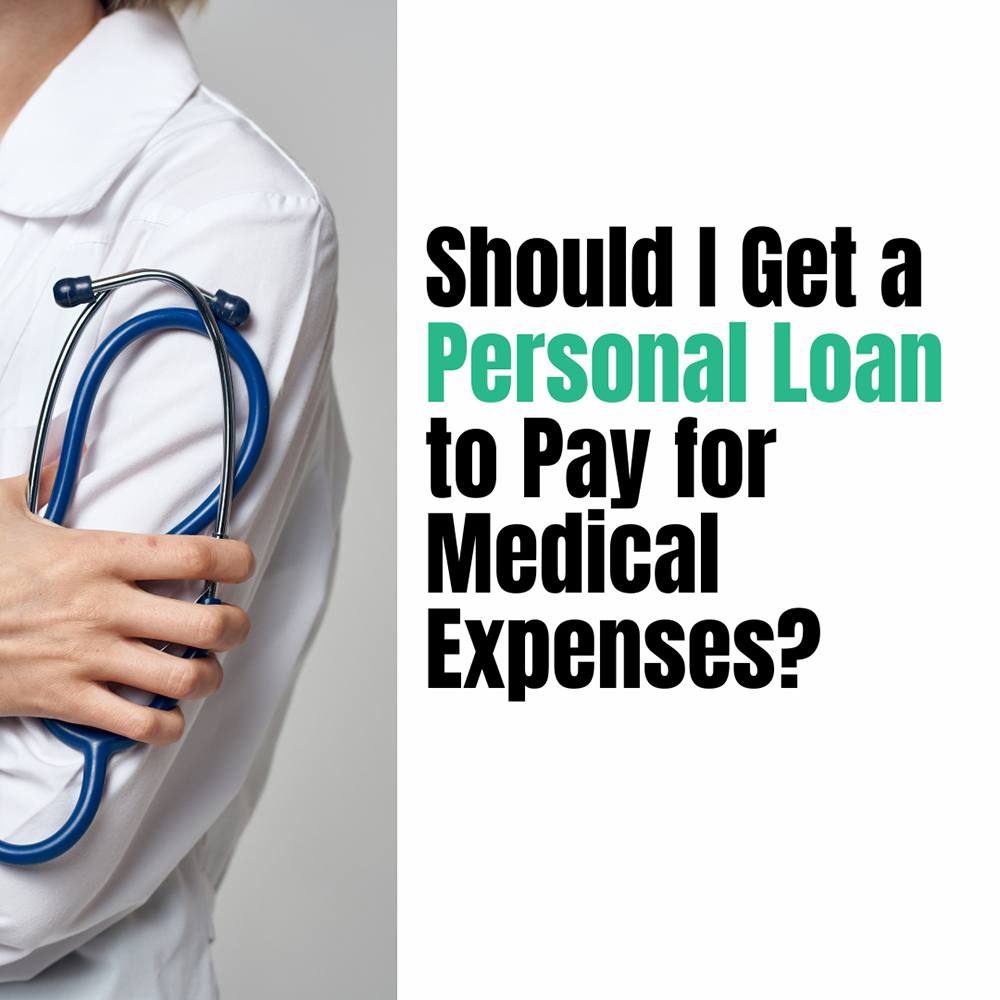
Should I Get a Personal Loan to Pay for Medical Expenses?
Medical bills can pile up fast. One trip to surgery can leave you drowning in debt if you’re not prepared. In fact, medical expenses are a top cause of personal bankruptcy in America.
When your savings dry up, and the bills keep coming, you may be wondering if getting a personal loan is a smart financial move. In this article, we’ll explore some key questions to guide your decision.
- How much do you really owe after talking with your providers and insurance?
- Are there lower-interest ways to pay besides a loan?
- What’s the impact on your budget – can you realistically afford loan repayment?
- And most importantly, what are the risks and rewards for YOUR situation?
Let’s break it down step-by-step.
Evaluating Your Medical Expenses
Before you apply for any loan, you need total clarity on what you owe. Here’s your playbook.
- Comb through the medical bills and make sure they’re legit. Ask the hospital or doctor to explain any unclear charges.
- Negotiate with your healthcare providers – many will lower or waive fees for cash payments. Don’t be shy to ask.
- Verify what’s covered by your insurance and what your out-of-pocket responsibility is. You have to understand the plan.
- Calculate your deductibles, co-pays, and maxes. Make sure you have the real total cost picture.
Key Takeaway: Do your homework to understand exactly what medical expenses you need financing for before considering a loan.
Pros and Cons of Using Personal Loans for Medical Expenses
Personal loans can provide fast cash for medical bills, but they come at a steep price called interest. Here’s the give and take.
Pros
- Get money right away instead of waiting months to save up.
- Fixed loan payments can help you budget versus irregular medical bills.
- They usually have a lower interest than credit cards.
Cons
- More debt obviously equals more money spent over time.
- Loans are risky if your finances are shaky or if your income is unstable.
Key Takeaway: Personal loans offer quick funds, but you pay interest costs. Weigh the pros and cons carefully based on your unique circumstances.
Alternatives to Personal Loans for Medical Expenses
Loans aren’t your only path for dealing with medical debt. What other options should you consider first? Let’s have a few looks at them.
- Ask your healthcare providers for no-interest payment plans. Many will work with you on this!
- Look into medical credit cards – just beware of high interest 20% or above.
- Check if you qualify for charity care or sliding payment scale programs.
- See if government insurance like Medicaid or ACA plans could lower your out-of-pocket.
- Try reaching out to nonprofit credit counselling agencies for advice if you’re overwhelmed.
Key Takeaway: Payment plans, community clinics, charity care programs, and insurance can potentially assist with medical bills instead of personal loans.
Steps to Take Before Applying for a Personal Loan
Okay, you’ve done your research and weighed the options. If you decide a personal loan is your best route, make sure to:
- Check your credit and improve your score if it’s under 700 – this gets better rates.
- Shop around with multiple lenders and compare rates and terms – don’t settle for the first offer. Online lenders like Level offer competitive rates and a very quick and uncomplicated application process.
- Make a realistic budget showing how you’ll repay the loan monthly. Can you truly afford it?
Doing your due diligence sets you up for loan success and prevents biting off more than you can chew financially.
Key Takeaway: Before seeking a personal loan, check your credit, shop for the best loan terms, and make a detailed repayment budget.
Conclusion: Should You Get a Personal Loan for Medical Expenses?
At the end of the day, whether a personal loan makes sense depends on your specific situation and financial health. If you have savings to pay expenses without debt, awesome! But loans can be a lifeline when you’ve got no other way to cover critical medical costs.
Whichever option you pick, do your homework and consider the tradeoffs and risks thoughtfully. Seek unbiased advice from financial counsellors if you’re unsure or overwhelmed. Most importantly, budget diligently so you can get through this hardship and still reach your financial goals!







Sorry, the comment form is closed at this time.